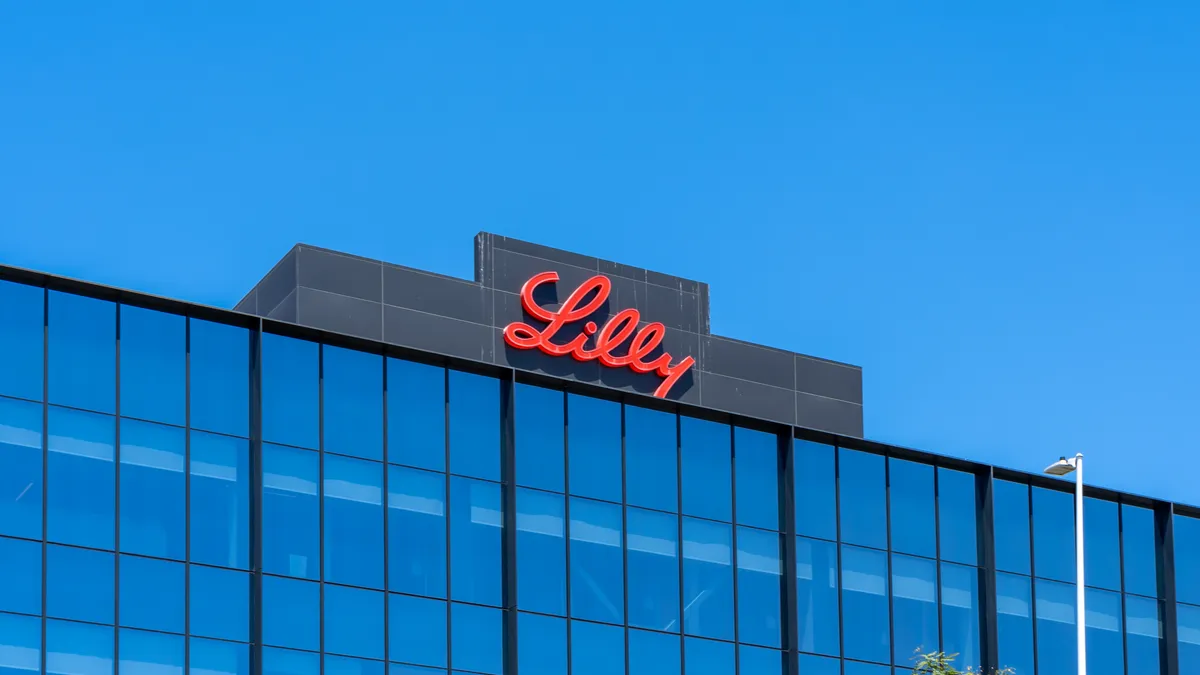Dive Brief:
- Eli Lilly is now distributing a single-dose vial form of its popular weight loss medicine Zepbound that it says people with a valid prescription can obtain for a cash price that’s 50% less than the current cost of other GLP-1 drugs for obesity.
- The single-dose vials are available through Lilly’s online service LillyDirect as a self-pay option, which could appeal to people without employer insurance coverage or those who don’t qualify for the company’s savings card program, Lilly said.
- A four-week supply of Zepbound single-dose vials at a 2.5 milligram dose will cost $399, while the 5 milligram dose will cost $549. While those prices are well below the $1,060 monthly list price of Zepbound’s injector pen formulation, they’re not far from the drug’s estimated net price after accounting for rebates and discounts to insurers, according to a client note from Evercore ISI analyst Umer Raffat.
Dive Insight:
Release of Zebound single-dose vials helps Lilly in several ways. The company has for months been struggling to keep up with demand of the medicine, and only just formally resolved the shortages that have made it hard for patients to find.
Adding another formulation beyond autoinjector pens should boost Lilly’s ability to churn out finished doses of the drug, company CEO David Ricks told investors on an Aug. 8 conference call.
“They certainly open up a node of the most constrained part of the supply chain,” said Ricks, referring to the filling and finishing of final dose containers. “So it just adds to our capacity.”
Making the single-dose vials available via LillyDirect, a service Lilly launched earlier this year, could also help the company counter aggressive marketing by telehealth companies that make use of compounded versions of the drug. These companies have offered compounded tirzepatide, the ingredient in Zepbound, at much lower prices than the drug’s list price from Lilly.
By resolving the Zepbound shortage, Lilly could curtail compounders mass producing versions of tirzepatide. But manufacturers of individualized versions can still operate — something telehealth firms like Hims and Hers appear to be counting on.
Additionally, Lilly’s pricing gives the company something of a response to the criticism it has faced on Zepbound’s list price, even as rebating has brought the drug’s net price to around $650 per month, per Evercore’s Raffat.
In a Tuesday note to clients, Raffat described how the self-pay discounts won’t change his forecasts for the drug’s revenue. He noted, too, how the Zepbound doses available via this channel are the lower 2.5 milligram and 5 milligram versions, which weren’t as potent at lowering weight as the 10 milligram and 15 milligram doses available via an autoinjector.
Zepbound competes with Novo Nordisk’s Wegovy, which works in a similar fashion by stimulating GLP-1 receptors to reduce appetite and slow stomach emptying. Lilly and Novo sell the drug ingredients in Zepbound and Wegovy as, respectively, Mounjaro and Ozempic to treat Type 2 diabetes.















